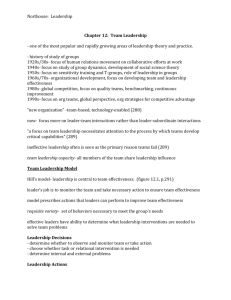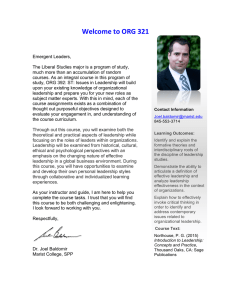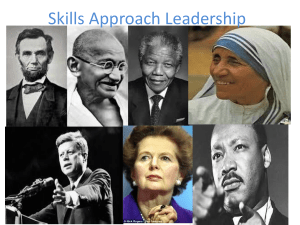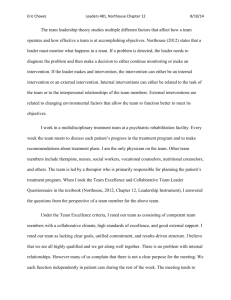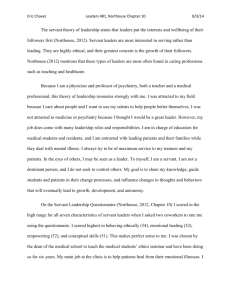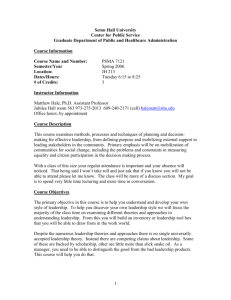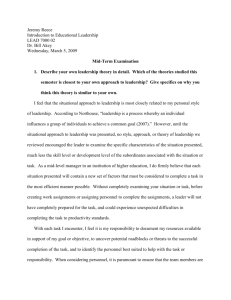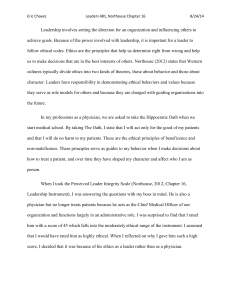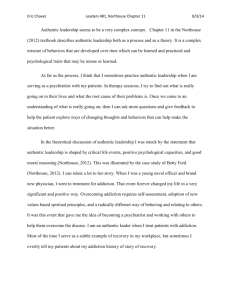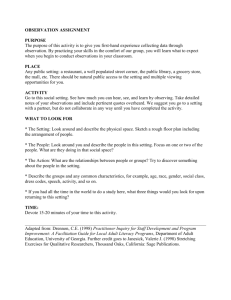Team Leadership Model - Heather Nydam
advertisement
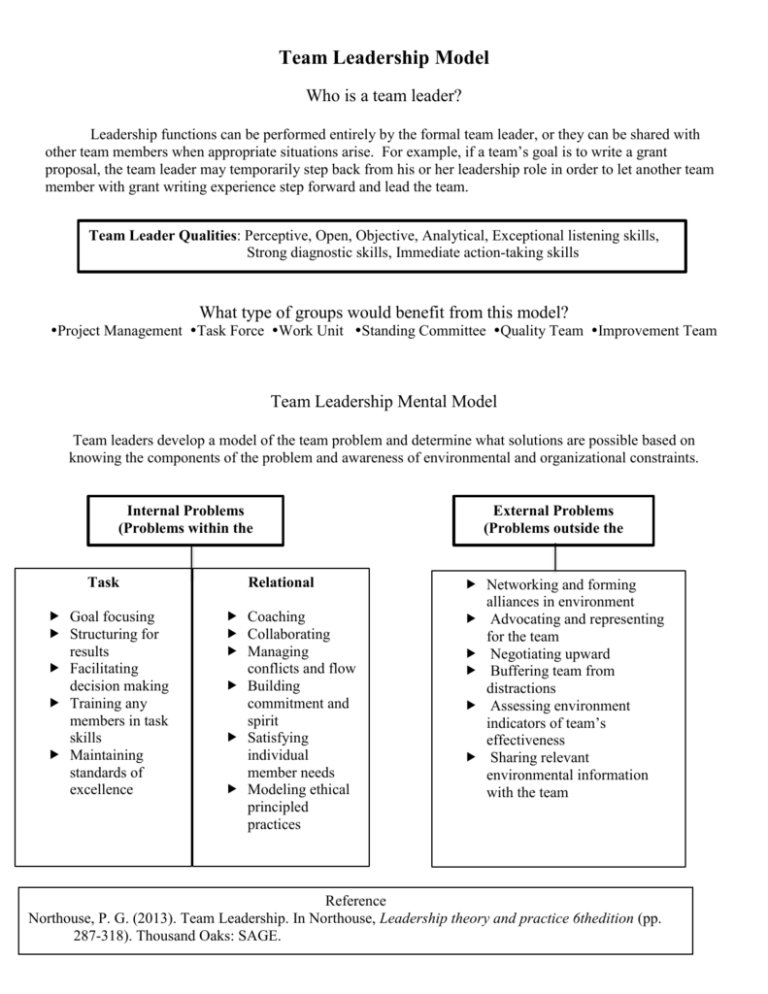
Team Leadership Model Who is a team leader? Leadership functions can be performed entirely by the formal team leader, or they can be shared with other team members when appropriate situations arise. For example, if a team’s goal is to write a grant proposal, the team leader may temporarily step back from his or her leadership role in order to let another team member with grant writing experience step forward and lead the team. Team Leader Qualities: Perceptive, Open, Objective, Analytical, Exceptional listening skills, Strong diagnostic skills, Immediate action-taking skills What type of groups would benefit from this model? Project Management Task Force Work Unit Standing Committee Quality Team Improvement Team Team Leadership Mental Model Team leaders develop a model of the team problem and determine what solutions are possible based on knowing the components of the problem and awareness of environmental and organizational constraints. Internal Problems (Problems within the team) Task Goal focusing Structuring for results Facilitating decision making Training any members in task skills Maintaining standards of excellence Relational Coaching Collaborating Managing conflicts and flow Building commitment and spirit Satisfying individual member needs Modeling ethical principled practices External Problems (Problems outside the team) Networking and forming alliances in environment Advocating and representing for the team Negotiating upward Buffering team from distractions Assessing environment indicators of team’s effectiveness Sharing relevant environmental information with the team Reference Northouse, P. G. (2013). Team Leadership. In Northouse, Leadership theory and practice 6thedition (pp. 287-318). Thousand Oaks: SAGE.
